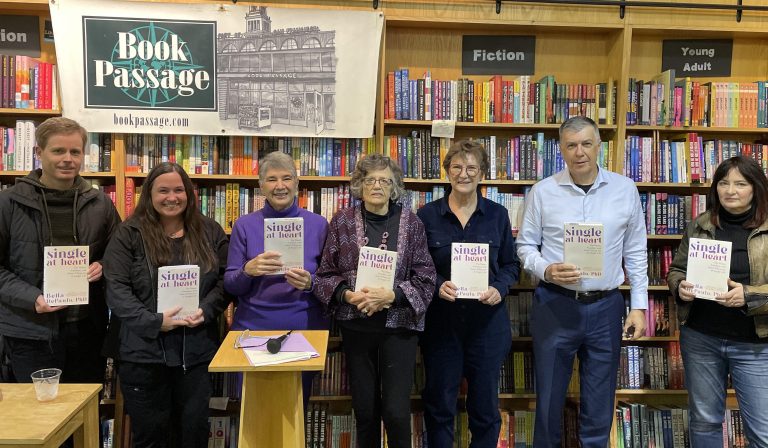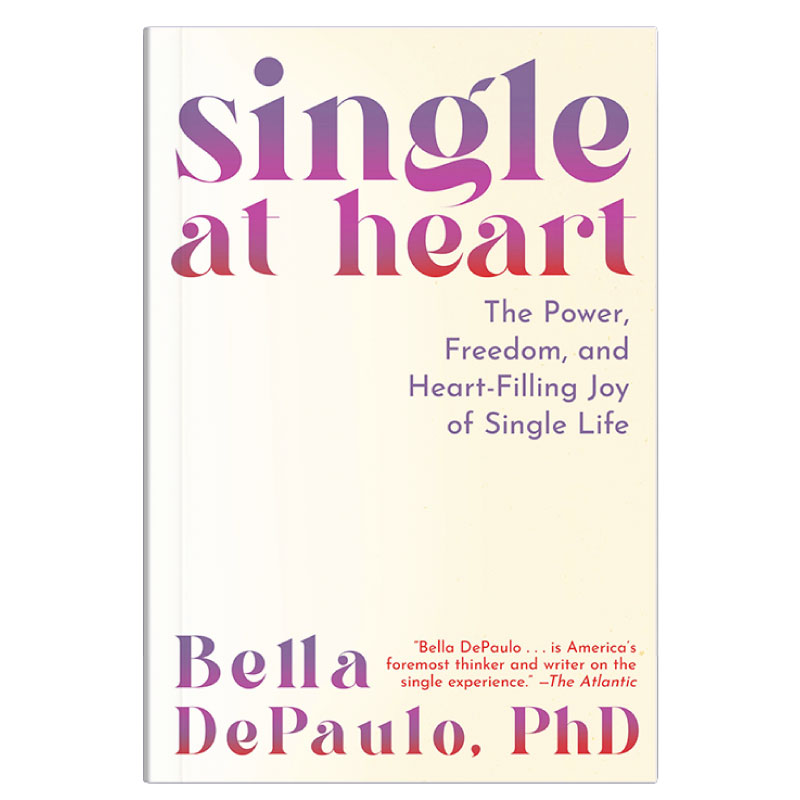On March 25, 2017, I gave a TEDx talk in Belgium, “What no one ever told you about people who are single.” Here I’ll tell you about it, give you a link to the talk, and also provide some references and bonus materials that were not included in my talk.
There are lots of reasons why people who get married should do better than those who stay single. For starters, don’t they get all that caring and commitment that single people don’t get?
Plus, our society is organized around couples. They are the ones who get included in social events, while single people often get marginalized or excluded. Married people have higher status than single people do. Single people get stereotyped and stigmatized.
The rewards of marriage are not just psychological. Married people get treated to more than 1,000 federal benefits and protections (including some very significant financial advantages) just for being married. They do not even have to be attentive, kind, or faithful to their spouse in order to qualify.
Yet, the most amazing thing happens when scholars study people over the course of their lives, as they go from being single to getting married: Marriage does not result in lasting benefits. People who get married generally do not end up happier or healthier than they were when they were single.
Single people often do surprisingly well even though the single people in most studies include all single people – those who love single life and those who hate it and wish they were coupled. In fact, in some ways, people who stay single do better than those who get married.
How is that possible? How can we explain how it is that single people get stereotyped, stigmatized, and ignored – and still live happily ever after?
That’s the question I addressed in the TEDx talk I gave in Belgium, “What no one ever told you about people who are single.” You can watch it here.
TED talks are kept to a strict time limit. I was warned before I gave mine that if I went over 18 minutes, my talk would not be posted. So I skipped over a point I wanted to make at the end of my talk, about why our society is so matrimaniacal. Here is the longer version of my ending:
So why have we been so overwhelmed with stories about the transformative power of getting married? Why are so many books and movies and TV shows obsessed with marriage plots? Why are social scientists telling us to look only at the people who are currently married and ignore the people who got divorced? And why are 5-year-olds spending months planning a wedding for ducks?
I think we are in a frenzy over weddings and coupling and marriage not because we are so secure about the place of marriage in our lives, but because we are so insecure. Never before has marriage been less necessary to our lives than it is now. There was a time when women were tethered to husbands for economic life support. Now many women can earn enough to support themselves and maybe some children, too. With advances in birth control and reproductive technologies, women can have sex without having children and they can have children without having sex, and they don’t need marriage for any of it.
With so many big, important components of life available outside of marriage for both women and men, what’s left for people who want marriage to maintain its special place in our lives? One possibility is to insist that there is still one thing we single people can only get by marrying – and that is genuine happiness.
Now we know that’s just not so. And we can all benefit from that. Married people, now that you know some of the secrets of a successful single life, feel free to steal them to add new shades of bliss to your lives. And single people, you know what to do: go out and live your single lives fully, joyfully, and unapologetically.
References
Want to know more about the research I mentioned in my talk? Here are some references. (This is a select list. There are other relevant studies in addition to these.)
College students’ predictions of how happy they would be if they stayed single for years and how happy they would be if they got married: Wendy Morris and I collected those data. They are described in Singled Out: How Singles Are Stereotyped, Stigmatized, and Ignored, and Still Live Happily Ever After.
Actual ratings of happiness by people who live single and then get married, and actual ratings of happiness by people who get married and then divorce: Those findings are also described in Singled Out: How Singles Are Stereotyped, Stigmatized, and Ignored, and Still Live Happily Ever After. At least 18 studies have followed people over time to see how their happiness changes (or does not change) when they get married. The specific results I presented in my TEDx talk were from the German study that has been ongoing for decades, as reported, for example, in Lucas, R. E., Clark, A. E., Georgellis, Y., & Diener, E. (2003). Reexamining adaptation and the set point model of happiness: Reactions to changes in marital status. Journal of Personality and Social Psychology, 84, 527-539.
The divorce rate: What is the divorce rate, really?
The study of the hierarchy of four categories of people (married, cohabiting, dating, or single with no romantic partner) and its implication for depression, stress, and loneliness: Wright, M., & Brown, S. L. (2017). Psychological well-being among older adults: The role of partnership status. Journal of Marriage and Family, 79, 833-849. (Described in “No partner, no worries: New study of psychological health.”)
Single people have more friends: Gillespie, B. J., Lever, J., Frederick, D., & Royce, T. (2015). Close adult friendships, gender, and the life cycle. Journal of Social and Personal Relationships, 32, 709-736. (Described in “Single people have more friends than married people do.”)
Single people do more to maintain their ties with friends, siblings, parents, and neighbors: Sarkisian, N., & Gerstel, N. (2016) Does singlehood isolate or integrate? Journal of Social and Personal Relationships, 33, 361-384.
Single people do a lot of volunteering: Unselfish singles: They give more time, money, and care
Single people contribute to the life of their cities and towns: Klinenberg, E. (2013). Going solo: The extraordinary rise and surprising appeal of living alone. NY: Penguin Books.
Married people become more insular: Musick, K., & Bumpass, L. (2012). Reexamining the case for marriage: Union formation and changes in well-being. Journal of Marriage and Family, 74, 1-18. (Described in “Slighting friends and family.”)
People living alone are less lonely: Luhmann, M., & Hawkley, L. C. (2016). Age differences in loneliness from late adolescence to oldest old age. Developmental Psychology, 52, 943-959. (Described in, “Is living alone the unlikely answer to loneliness?”)
Single people value meaningful work: Johnson, M. K. (2005). Family roles and work values: Processes of selection and change. Journal of Marriage and Family, 67, 352-369. (Described in “Singles value meaningful work – and did so even in high school.”)
Single people experience more personal growth: Marks, N., & Lambert, J. D. (1998). Marital status continuity and change among young and midlife adults: Longitudinal effects on psychological well-being. Journal of Family Issues, 19, 652-686. (Described in “Two of the profound rewards of staying single.”)





